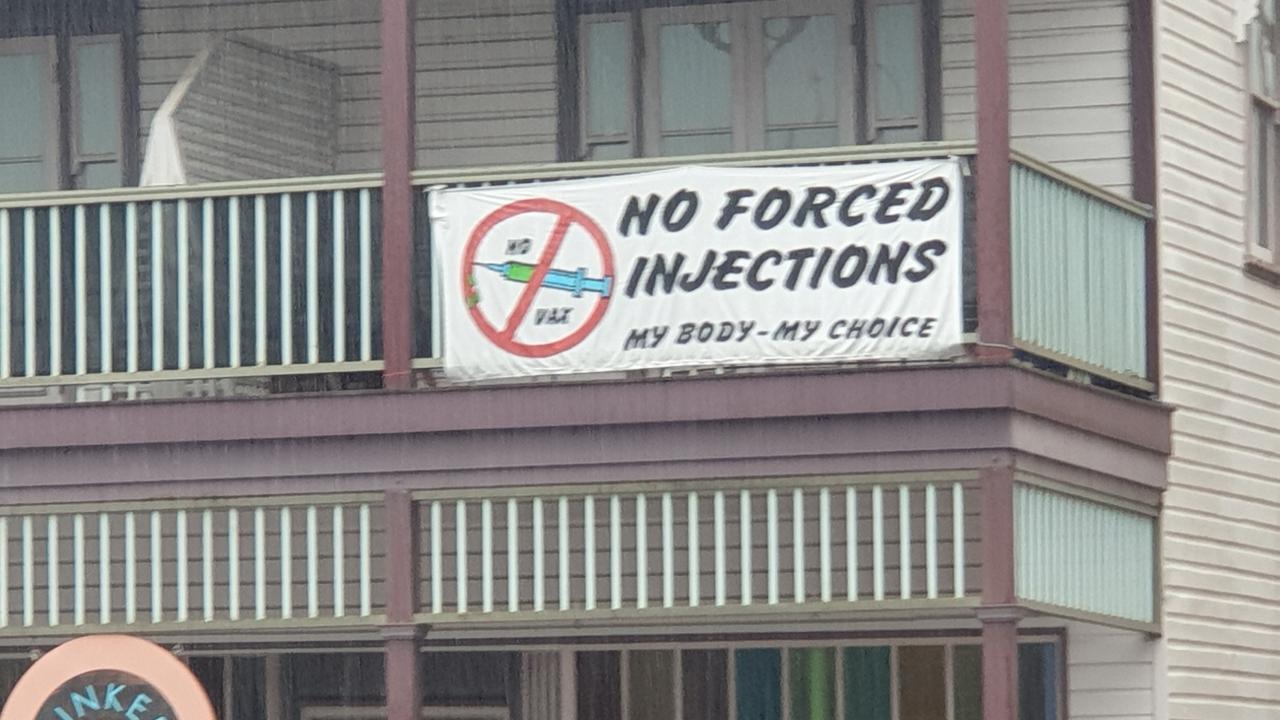Australia’s anti-vaxx hot spots revealed ahead of COVID-19 vaccine rollout
With Australia about to begin a widespread program to vaccinate itself against COVID-19, in these parts, residents are willing to fight back.
There have been fears the fast-tracking of a COVID-19 vaccine in Australia could hit brick walls when it comes to anti-vaccination hot spots.
Vaccinating against COVID-19 is the easiest way for Australians to get their normal lives back, but millions are hesitant to get the jab.
Our Best Shot is news.com.au’s campaign answering your questions about the COVID-19 vaccine roll out.
We’ll debunk myths about vaccines, answer your concerns about the jab and tell you when you can get the COVID-19 vaccine.
Experts have warned areas with notoriously low rates of other vaccinations will be “really hard to crack” with the COVID-19 jab.
States and territories have already indicated areas such as Queensland’s Gold and Sunshine Coasts where rates are low will be targeted in campaigns.
In places like Mullumbimby, a town in the NSW Northern Rivers region which has been dubbed the “anti-vaxx” capital of Australia in the past, there are already signs up opposing vaccination.
Got a burning vaccine question you want answered? Prime Minister Scott Morrison will join news.com.au tonight for a live Q+A. To submit your questions, log on to news.com.au’s Facebook page from 7.30pm.

Embracing alternative medicines is commonplace in the town that has long been the birthplace of hippy culture.
Locals say scepticism of mainstream medicine is a part of their upbringing.
The statistics are grim. Just three years ago, immunisation rates for five year olds in the town were as low as 52 per cent.
Intensive care doctor Rachel Heap, who has treated COVID-19 patients, in September spoke about protesters in the area who marched through the town without masks and social distancing.
“That day was awful, it was awful, it was really distressing,” she told The Guardian.
“I was vulnerable. Working with COVID-19 patients is a thing that we do, but it obviously carries risk to the healthcare worker, it carries risk to me, it carries risk that I bring it home to my family.
“So I’d been working in a high-stress environment … I’ve driven home past people who are hugging and standing close together with placards, fighting something that is a conspiracy theory.
“I’m not sure how you’re supposed to deal with that.”
In the nearby Byron Shire, rates according to NSW Health sit at 74.3 per cent for one year olds, 63.6 per cent for two year olds and 73.9 per cent for five year olds, a stark contrast to the state average of 94.5 per cent, 91.4 per cent and 94.2 per cent.
They have hardly changed from 2015-16 when the rate was 72.3 per cent.
Areas further north in Queensland also have rates below the national target of 95 per cent.
Mater Health Services Director of Infectious Diseases Paul Griffin said these would be “really hard to crack” with the COVID-19 immunisation.
“It’s such a different vaccine and a different program than what we’re used to seeing and there are some notorious myths that have affected vaccine rates, for example with autism and measles, that has perpetuated and contributed to some of those rates of vaccinations,” he told The Courier Mail.
“I don’t know that our previous information necessarily translates to what we’ll see with COVID, but I do suspect in those areas that are inherently reluctant to get vaccinated that yes they’ll have relatively low rates here as well.”
Vaccine refusal doesn’t just put the individual child or person at risk.
When it clusters in communities, lower coverage means “herd immunity” is lost. The more people who are vaccinated, the harder it is for disease to spread.
RELATED: Potential side effects of the vaccine
RELATED: When can you get the vaccine
Herd immunity also provides indirect protection to the unvaccinated, like infants too young to be vaccinated.
The Department of Health said the global effort to find COVID-19 vaccines was not just a way to reduce death and illness but an effective vaccine was also the best way to move forward into a ‘COVID normal’ life.
“The Australian, state and territory governments all have a collective aim to get Australians back to work, but most importantly, to improve the mental health and wellbeing of Australians,” the department said in a statement to news.com.au.
“Safe and effective vaccines are an important step to free movement within Australia and enable us to work towards international travel.
“Achieving community protection through immunisation would see people connecting with family and friends more easily and maintaining the momentum we’re seeing in our job market– all vital components to improving the lives of many Australians.
“COVID-19 vaccines will be voluntary in Australia, but it’s important that everyone who can get it, does get it, to help keep themselves and others safe.”




